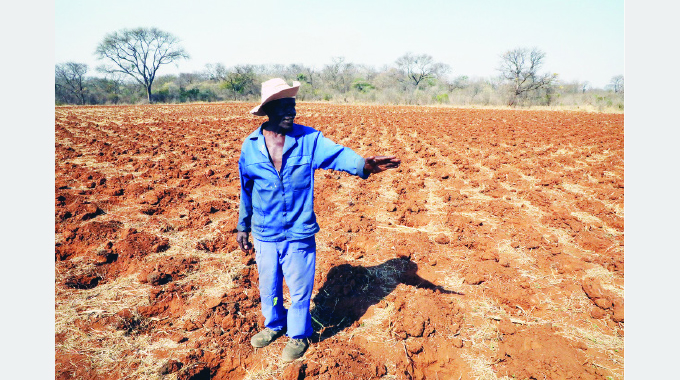Irrigation scheme to water arid Zaka

Precious Manomano Herald Reporter
Thousands of people in Zaka, one of Masvingo province’s most arid districts, are expected to benefit and enhance food security from Fuve Panganai B irrigation scheme.
The Government, under the Accelerated Irrigation Rehabilitation and Development programme, has started resuscitating communal irrigation schemes nationwide, a key enabler to improved yields and livestock production for smallholder farmers.
Speaking after commissioning the Fuve Panaganai B irrigation scheme in Zaka on Friday, Lands, Agriculture, Fisheries, Water and Rural Development Minister, Dr Anxious Masuka said the irrigation will transform the livelihoods and many households that are close to the irrigation scheme.
He urged farmers to take farming seriously and maximise productivity.
“In regards to Fuve Panganai B Irrigation Scheme which I am commissioning today, it is the Government’’s hope that this will transform many livelihoods. However, this can only be achieved by focusing on improved production and productivity which can only be guaranteed if we take farming as a business. Increased agricultural production and productivity will in turn, enhance income, increase opportunities for value addition and the development of agribusiness value chains,” he said.
Zaka district has slowly developed into an irrigation hub with the availability of water from major dams like Bangala, Manjerenje and Siya.
Dr Masuka also said the Smallholder Irrigation Revitalisation Programme (SIRP) has mainstreamed training of Irrigation Management Committee leaders in various aspects that influence production and productivity such as conflict management and leadership, governance, gender, good agronomic practices and taking farming as a business.
Dr Masuka also encouraged the Smallholder Irrigation Revitalisation Programme to promote the production of traditional grains.
“This thrust will address nutrition related health challenges which are currently being faced among our communities.
“There are effects of hidden hunger caused by nutrients such as iron, zinc and Vitamins,” he said.
He said a total of 2 000 youths will benefit from the programme while women are expected to constitute 50% of the beneficiaries.
“The President of Zimbabwe, His Excellency Dr ED Mnangagwa is on record saying the Second Republic will leave no one and no place behind as we journey towards Vision 2030. In this regard, it is pleasing to note that SIRP is promoting social inclusion of previously marginalized groups such as youths, people with disabilities and women in agriculture,” he said.
Under the Smallholder Irrigation Revitalisation Programme, Government partnered with the International Fund for Agricultural Development (IFAD), OPEC Fund for International Development (OFID) and the farmers, to implement the Smallholder Irrigation Revitalisation Programme which started in 2016.
The seven-year programme which runs until 2023, will revitalize 6 100ha in 60 irrigation schemes in the four provinces of Masvingo, Manicaland, Matabeleland South and Midlands.
These 60 irrigation schemes will directly impact 8 500 households and an additional 19 000 rain fed households in the surrounding areas will receive capacity building support.
Masvingo Province, like the rest of Zimbabwe has experienced changes in its climatic conditions which has militated against efforts by the country’’s agricultural sector to achieve national food security.
This is a disturbing development given that 70% of people rely on agriculture as a source of livelihood. As a result of climate change, the country has witnessed cyclones such as the 2018 Cyclone Idai which caused untold destruction to livelihoods and destroyed agricultural infrastructure, livestock and crops in Masvingo, Manicaland and Matabeleland South Provinces.
Due to climate change, rainfall patterns are no longer reliable and despite promises of normal to above normal rains last season, most parts of the country had a late start to the agricultural season.
This serious affected agricultural production. In December and January 2021, most parts of the country received heavy rainfall which caused leaching of crops in some areas, followed by a lengthy dry spell which led to the wilting of crops.









Comments